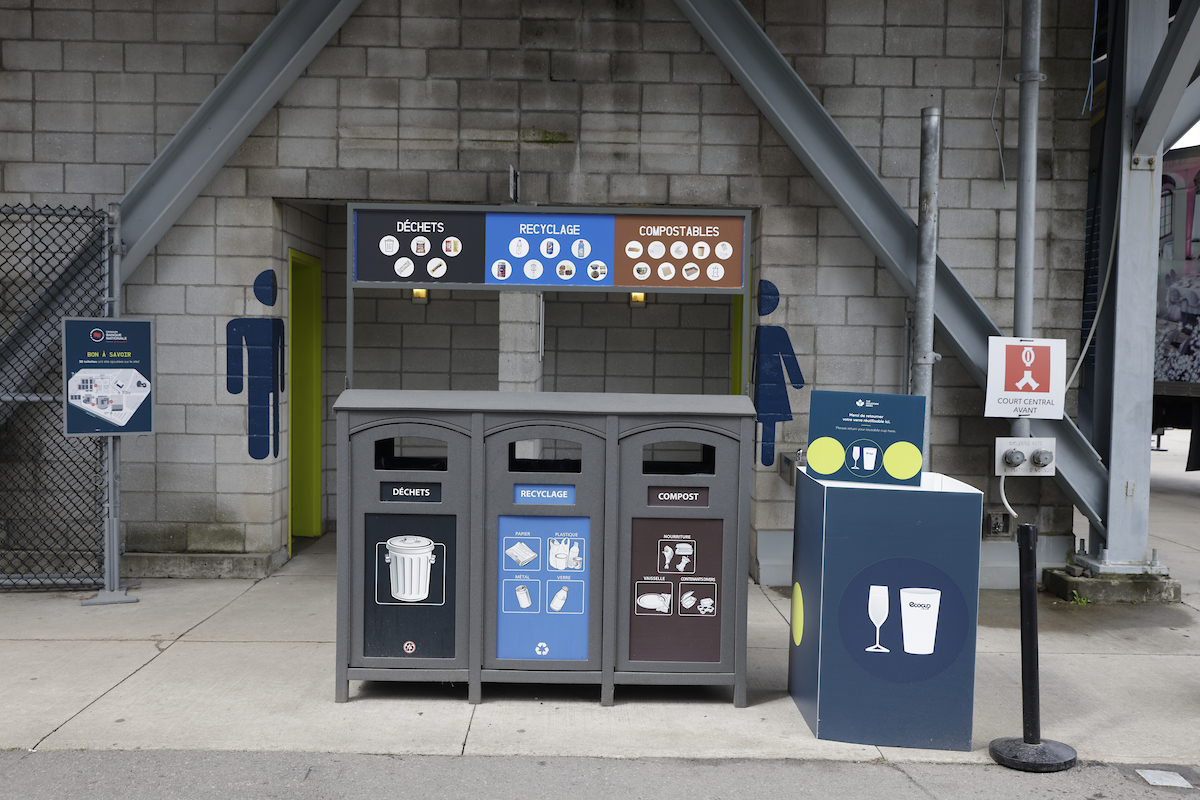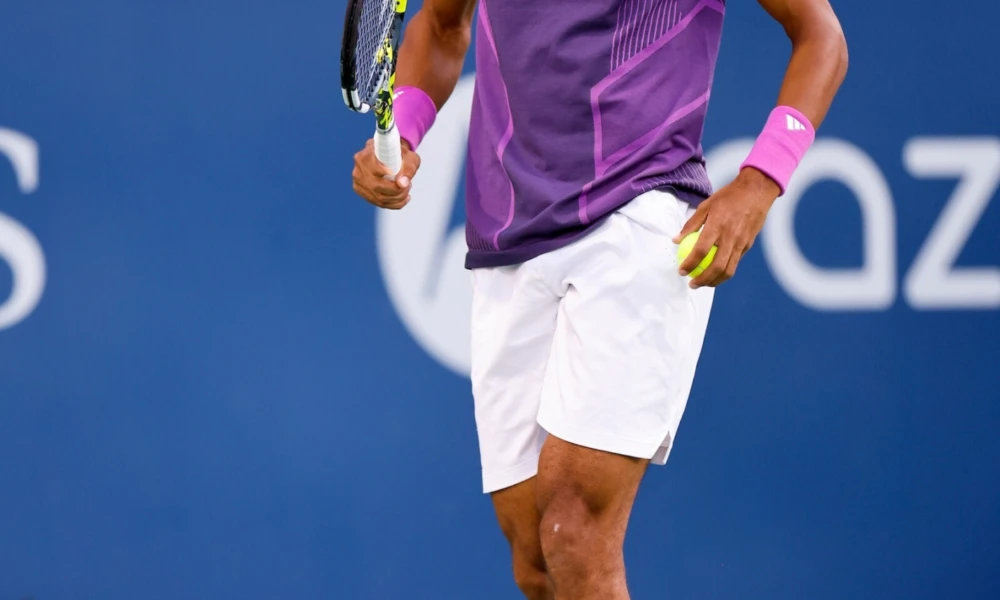Tennis Canada continues to leave no stone unturned when it comes to reaching their goal of becoming a sustainability leader in Canada and throughout the world by 2030.
An important pillar of the federation’s mission to minimize its environmental footprint is hosting world-class tournaments, the National Bank Open presented by Rogers in Montreal and Toronto, that are environmentally and socially responsible.
One of the highlights of the sustainability initiatives implemented in both cities is an On-Site Sorting Station powered by WM, located near dining and resting areas where many fans enjoy some downtime between matches with food and a beverage in hand on both sites, it allows for a large volume of residual materials to be properly sorted.
Centralizing the operation, which is possible because of WM’s expertise, ensures that recyclable and compostable materials are separated at the source. This reduces the risk of contamination and increases the accuracy of sorting, leading to higher diversion rates from landfills.
“What appealed to WM Canada most about Tennis Canada's sustainability strategy for the National Bank Open is its comprehensive and forward-thinking approach,” said Tracy Black, President of WM Canada. “The progress made to date on Tennis Canada’s four specific targets including: zero waste by 2030, carbon neutral by 2030, environmentally and socially sustainable by 2030, promoters and inspirers of community action by 2030, demonstrates the organization’s commitment and effectiveness in driving meaningful change as we work to create a more sustainable tomorrow.”
In addition to allowing for the separation of materials at the source, a sorting station provides a controlled environment where trained staff can manage the sorting process efficiently. This control ensures that materials are handled correctly and sorted into the appropriate streams, maximizing the effectiveness of recycling and composting efforts. Its presence can also serve as an educational tool for participants and spectators as it raises awareness about the importance of proper material segregation and encourages environmentally responsible behaviour, both during the tournament and beyond.
The sorting process is as easy as 1, 2, 3. Step 1: Fans bring their waste to the WM sorting station, Step 2: the waste is sorted, Step 3: the waste is collected daily for processing.
A few Montreal Fun Facts
- All food containers (plates, boxes, etc.) and utensils distributed on-site at IGA Stadium are compostable or recyclable. Plus, all glasses are reusable.
- Once guests have finished eating, they can make their way to the sorting station where they will be greeted by a team that is responsible for putting everything in the right bins.
- Shelves are installed in the containers so that employees can accumulate surplus during the big rushes and concentrate on sorting during the quieter moments.
- Our bags are coded. Blue bags are used in the sorting station to signify that the waste is 100% recyclable and that the contents do not have to go through the sorting center (located off-site in the parking lot). Instead, they can go straight into the recycling container. A bit like an express line of sorts.
- The same goes for compost bags. Real compostable bags are used in areas where we know that the contents are 100% compost. Regular and transparent bags are used in unsupervised bins so that they can be sorted by our team at the off-site sorting center.
- People can also bring their reusable glasses and cups to the sorting station. They will be washed and put back into circulation.
- In 2024, refundable aluminum cans were collected and returned in Montreal. Beginning in 2025, thanks to the updated provincial consignment policy for Quebec, the On-Site Sorting Station powered by WM will play a key role in separating both cans and refundable plastic bottles from other waste. Returning cans and bottles instead of sending them to a general recycling facility ensures better recyclability rates.
A few Toronto Fun Facts
- All containers needed for drinking or eating on-site are reusable, compostable or recyclable.
- Through our partnership with WM, Toronto now has a compost hauler to capture all compost materials from the public areas.
- Toronto achieved a 58.92% diversion rate in 2024 which was 16% YOY increase from 2023.
- Toronto's sorting station features a gamification spin-wheel component that attracts fans and offers sustainable sourced prizes to those who bring their waste to the sorting station.
- Weighing of the waste for each sorting stream is conducted within the sorting station and a unique 'waste diversion report' will be produced for the space in addition to the overall tournament diversion report that will help us better analyze and make future improvements.
Learn more about Tennis Canada’s sustainability efforts at the National Bank Open and its ongoing commitment to the planet.








